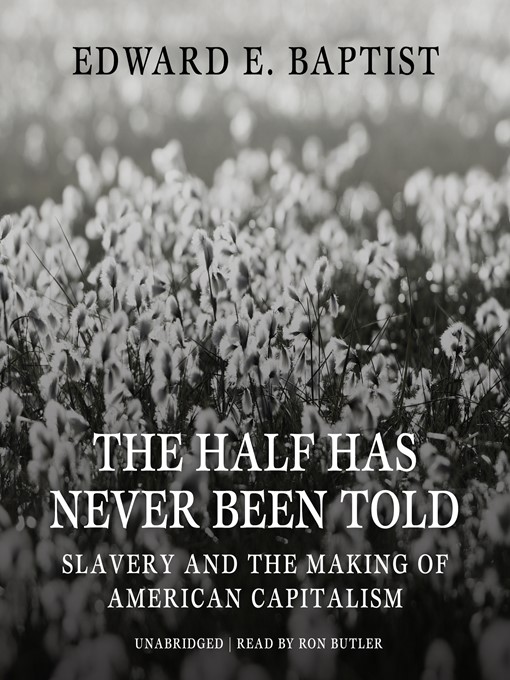

Now he expands his purview to the entire cotton kingdom, the heartland of 19th-century American slavery. Baptist, who teaches at Cornell University, is the author of a well-regarded study of slavery in Florida. Baptist situates “The Half Has Never Been Told” squarely within this context. And far from being economically backward, slave owners pioneered advances in modern accounting and finance.Įdward E. Recently, historians like Sven Beckert, Robin Blackburn and Walter Johnson have emphasized that cotton, the raw material of the early Industrial Revolution, was by far the most important commodity in 19th-century international trade and that capital accumulated through slave labor flowed into the coffers of Northern and British bankers, merchants and manufacturers. For decades, historians depicted the institution as unprofitable and on its way to extinction before the Civil War (a conflict that was therefore unnecessary). Slavery plays a crucial role in this literature. This new work portrays capitalism not as a given (something that “came in the first ships,” as the historian Carl Degler once wrote) but as a system that developed over time, has been constantly evolving and penetrates all aspects of society. Recently, however, the history of American capitalism has emerged as a thriving cottage industry.

This situation was exacerbated in the 1970s, when economic history began to migrate from history to economics departments, where it too often became an exercise in scouring the past for numerical data to plug into computerized models of the economy. For residents of the world’s pre-eminent capitalist nation, American historians have produced remarkably few studies of capitalism in the United States.


 0 kommentar(er)
0 kommentar(er)
